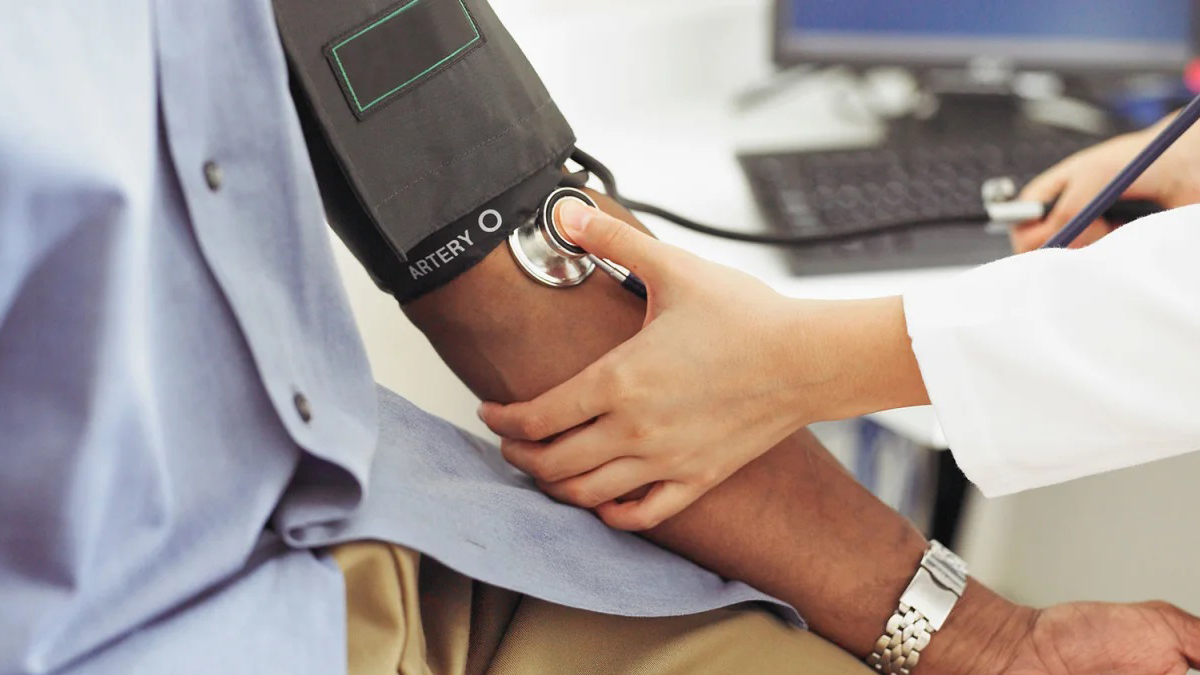
Covid-19 linked with higher risk of high blood pressure, study finds

When it comes to developing high blood pressure, Covid-19 might play an outsized role, a new study says.
The report, published Monday in the medical journal Hypertension, found that more than 1 in 5 patients who were hospitalized with Covid-19 – and over 1 in 10 who were not – had been diagnosed with high blood pressure six months later. Compared with people who had influenza, another upper respiratory virus, those hospitalized with Covid-19 were over twice as likely to develop hypertension.
According to the US Centers for Disease Control and Prevention, high blood pressure, also known as hypertension, increases the risk of heart disease and stroke, the leading causes of death in the United States. Nearly half of the adults in the nation have hypertension, and in 2021, the CDC says, it caused nearly 700,000 deaths in the United States.
The threshold for hypertension can sometimes vary by the doctor, but the most recent guidelines from the American Heart Association and the American College of Cardiology define it as a reading of 130 over 90.
In the new study, the researchers looked at the medical records of over 45,000 Covid-19 patients and nearly 14,000 influenza patients in the Bronx borough of New York City between 2020 and 2022. Before their viral infection, none of the patients had a history of hypertension. At a six-month follow-up appointment, the researchers then tracked which ones had new diagnoses of the heart condition.
Across the board, people who were hospitalized with Covid-19 were diagnosed with hypertension at about twice the rate of those who were not: About 21% of hospitalized Covid-19 patients were hypertensive, compared with 11% who were not hospitalized.
Of the hospitalized Covid-19 patients, more than 1 in 5 developed hypertension during their time in the hospital, while actively infected with Covid-19, despite having no history of high blood pressure.
However, in comparison with patients who were infected with the flu, Covid-19 patients had worse blood pressure outcomes.
Covid-19 patients who had been hospitalized were 2.23 times as likely to develop high blood pressure as hospitalized influenza patients. Even Covid-19 patients who weren’t in the hospital were over 50% more likely than nonhospitalized flu patients to develop hypertension.
The high incidence of hypertension in people with Covid-19 is “alarming given the sheer number of people affected by COVID-19,” the report says.
The researchers found hypertension to be more common in a few key demographic groups. People who were over 40 years old, were Black or had pre-existing conditions like chronic obstructive pulmonary disease (COPD), coronary artery disease or chronic kidney disease were at a higher risk of developing hypertension after a Covid-19 infection.
Patients who were treated with vasopressor medications, a class of drugs that constrict vessels to raise blood pressure, or corticosteroids, a type of anti-inflammatory drug often used to treat arthritis, were also at a higher risk.
“Given the sheer number of people affected by COVID-19 compared to influenza, these statistics are alarming and suggest that many more patients will likely develop high blood pressure in the future, which may present a major public health burden,” Dr Tim Duong, a study author and professor of radiology at the Albert Einstein College of Medicine, said in a news release.
But scientists are unsure how the Covid-19 virus might trigger new-onset high blood pressure. The study theorizes that the coronavirus could infect heart cells and disrupt blood pressure regulation or that acute kidney injury – a common complication during Covid-19 hospitalization – might contribute to hypertension.
The report also noted that most of the people in the study came from communities with low socioeconomic status, which might have increased their risk of developing high blood pressure. Risk factors linked with poverty, including stress and reduced access to healthy food, might have raised rates of hypertension.
As a result, the report said, longer-term follow-up research would be useful to track whether heightened blood pressure can be more closely linked to Covid-19 and, if so, what the long-term heart health effects might be. For now, the data could tip doctors off to the link between Covid-19 and hypertension.
“These findings should heighten awareness to screen at-risk patients for hypertension after COVID-19 illness to enable earlier identification and treatment for hypertension-related complications, such as cardiovascular and kidney disease,” Duong said.
CNN












Comments